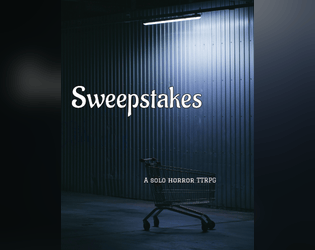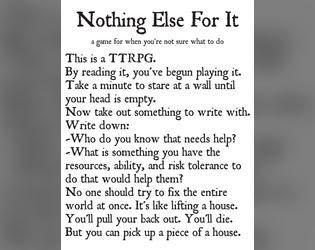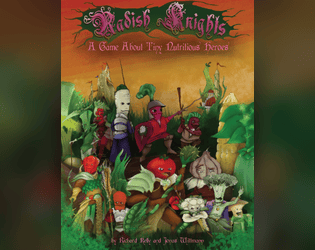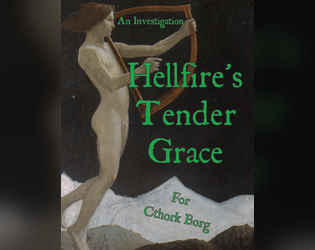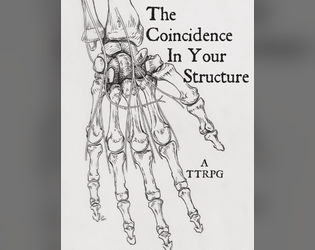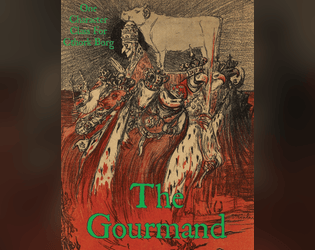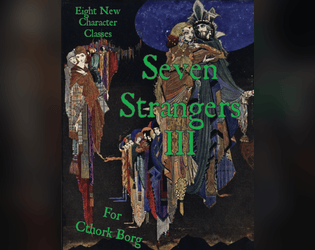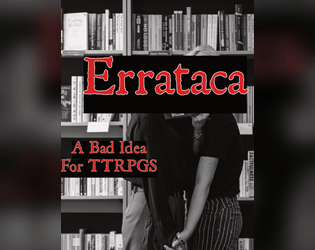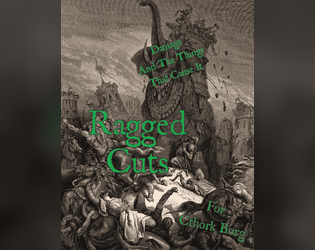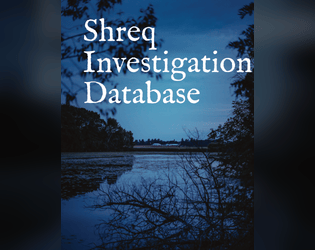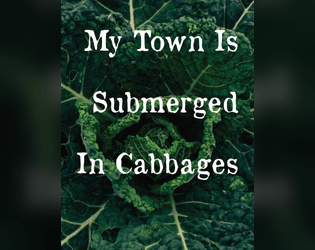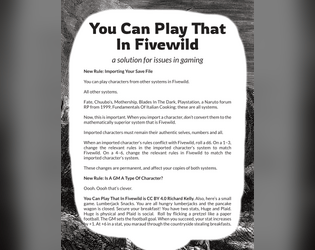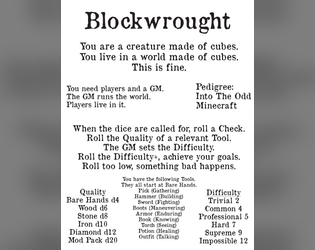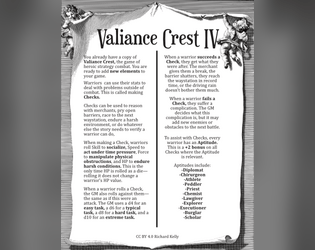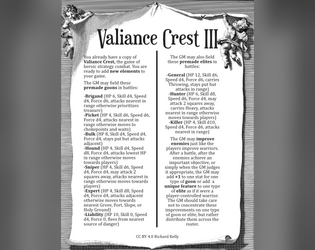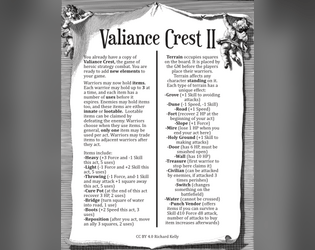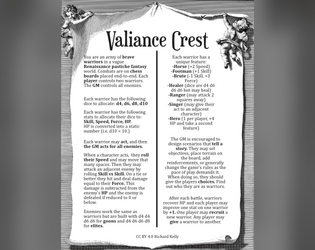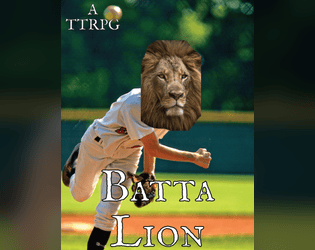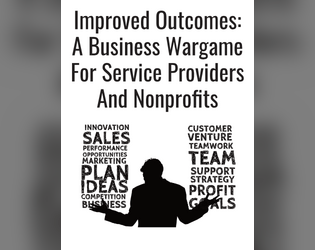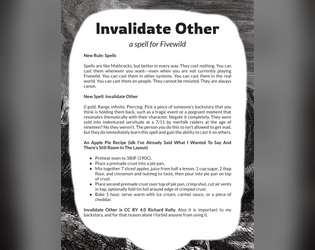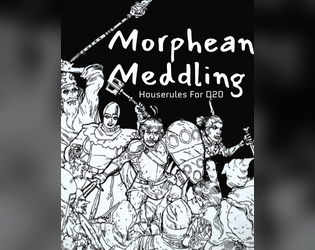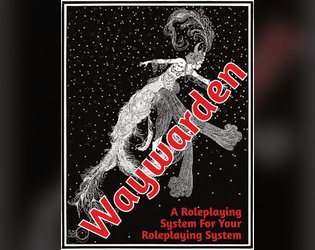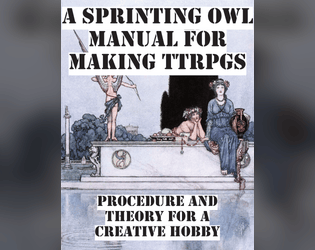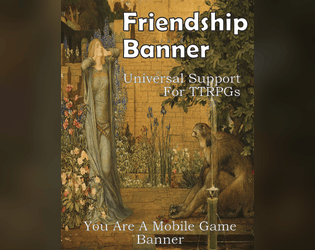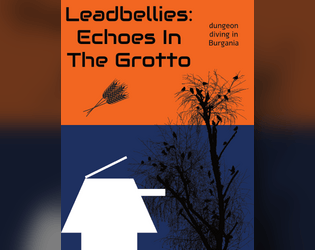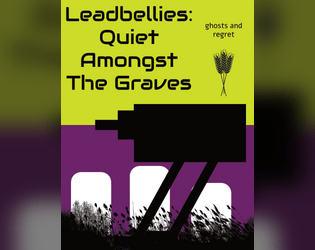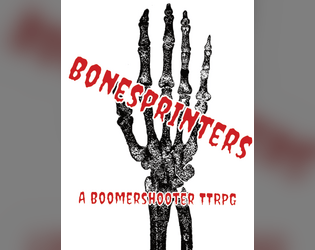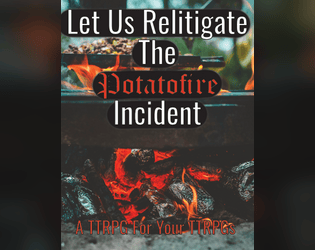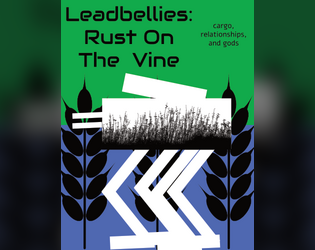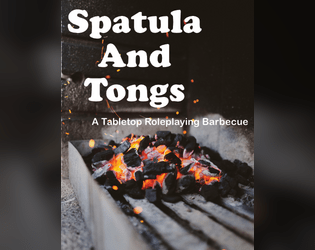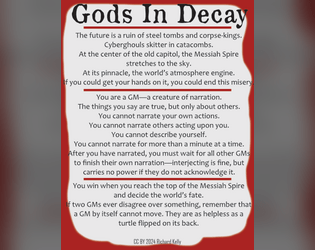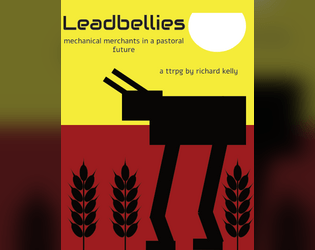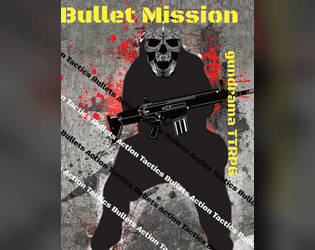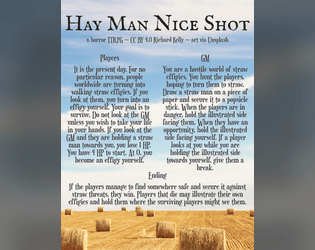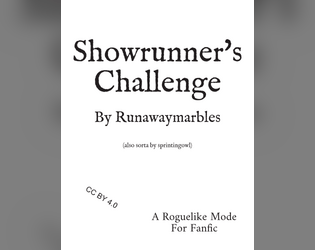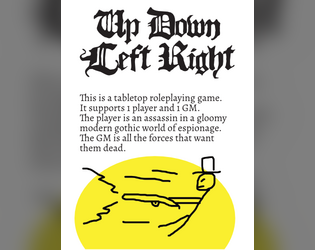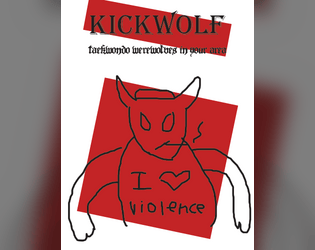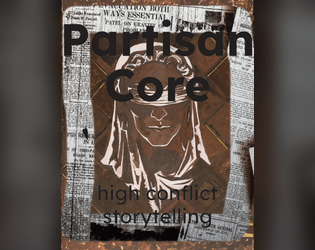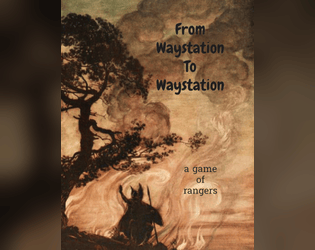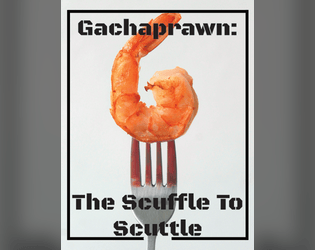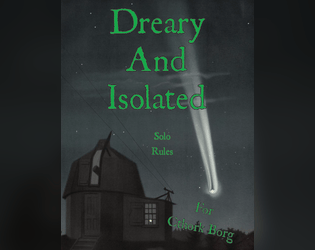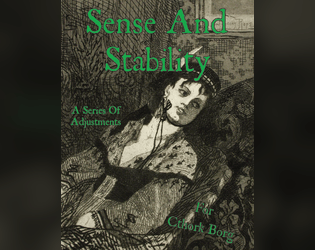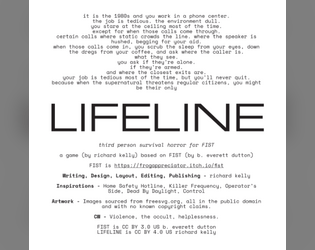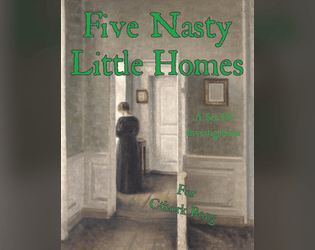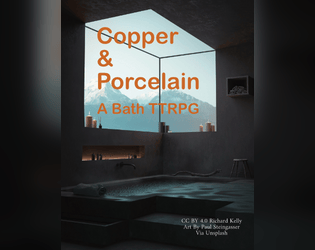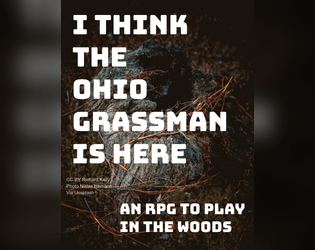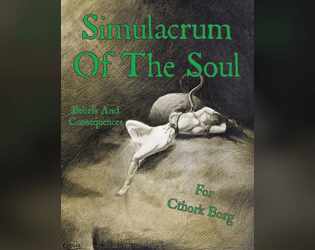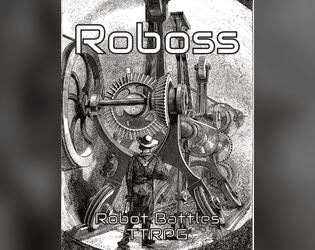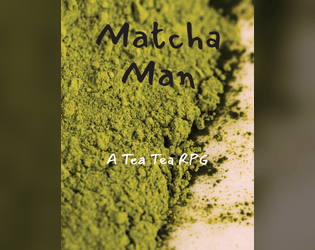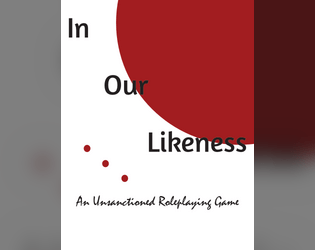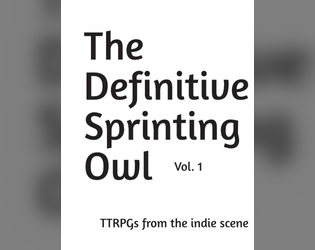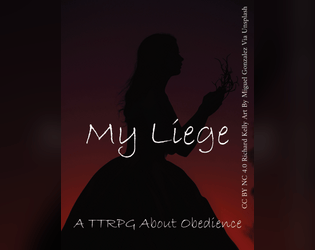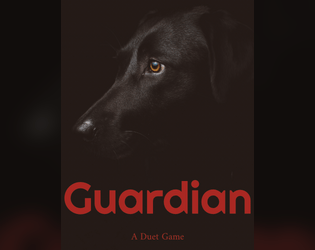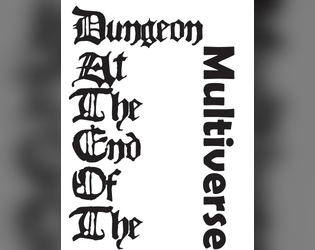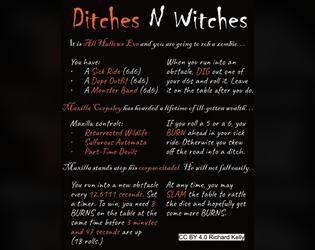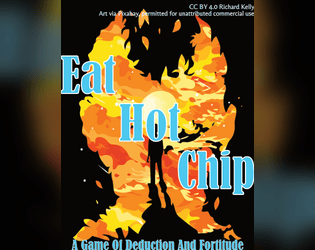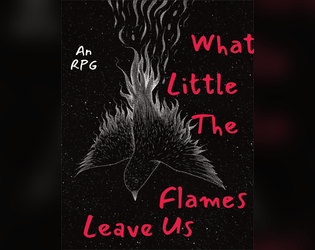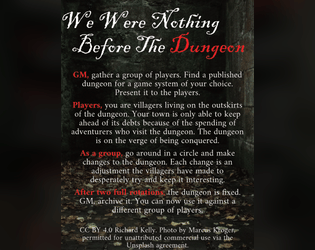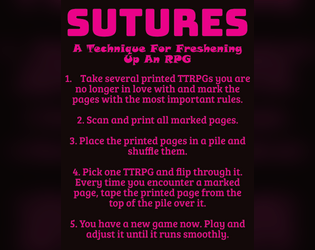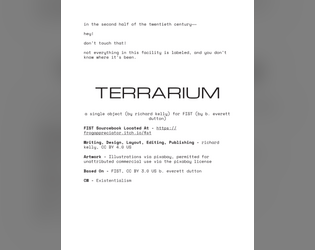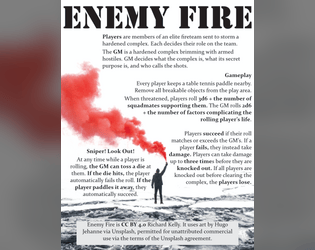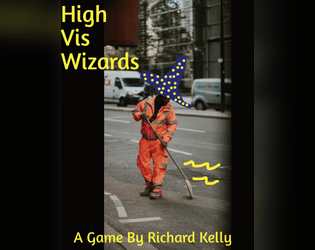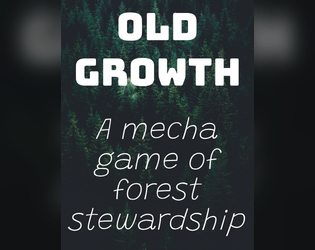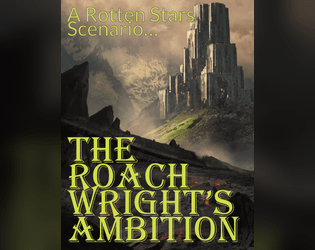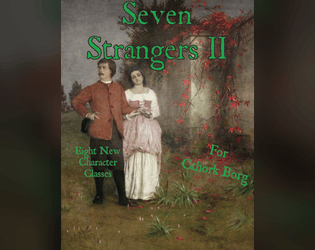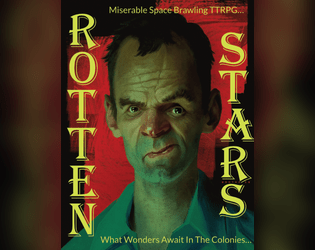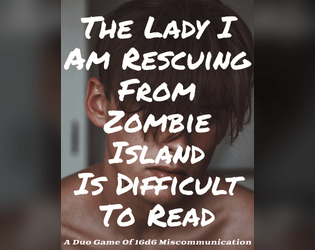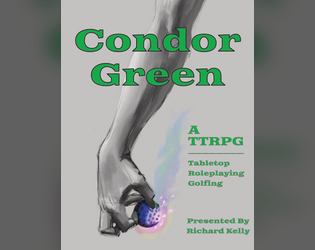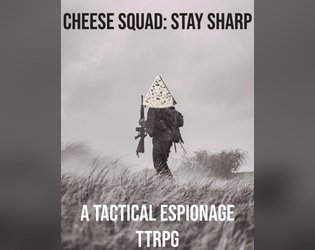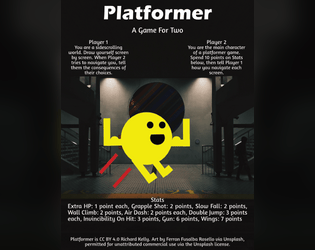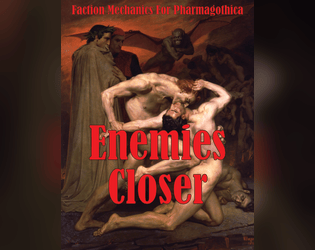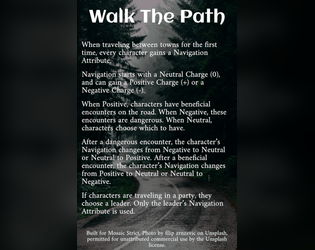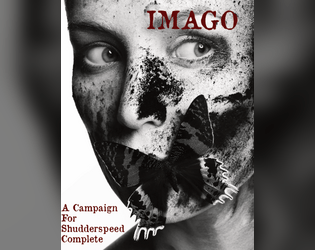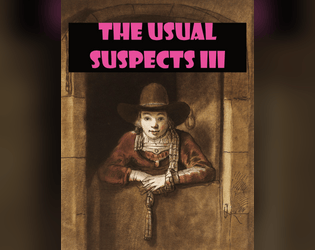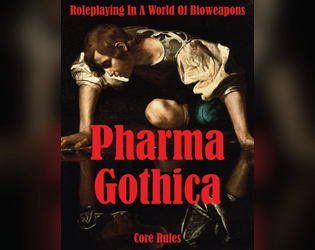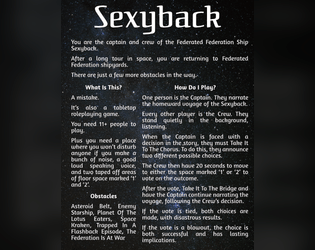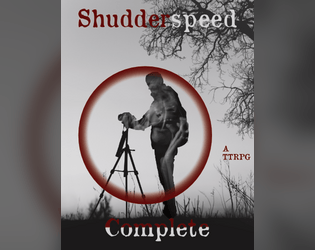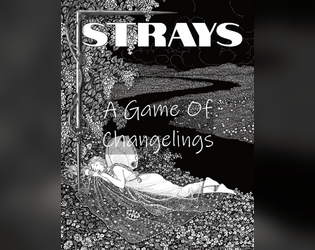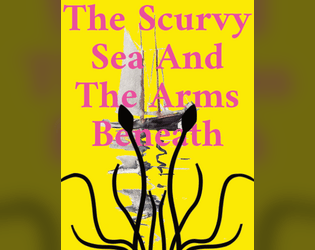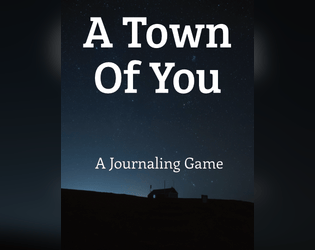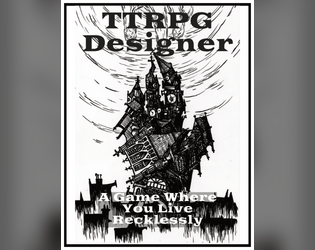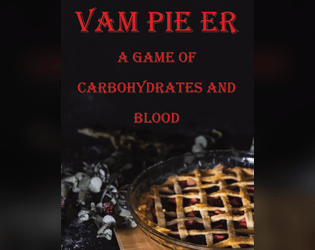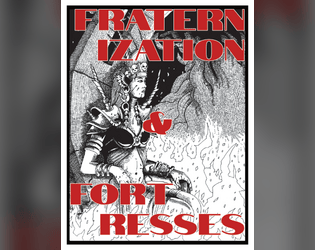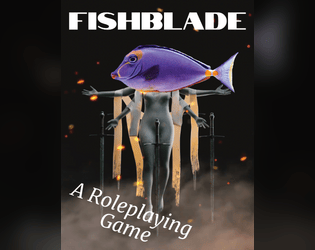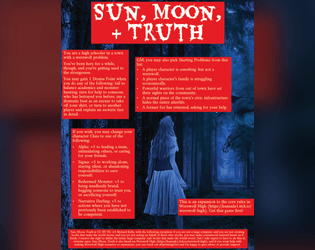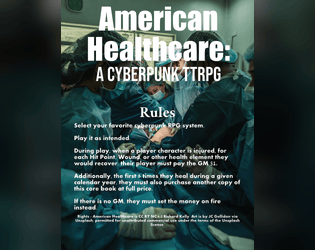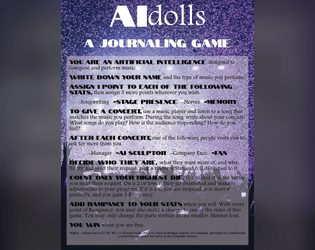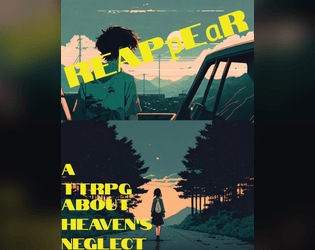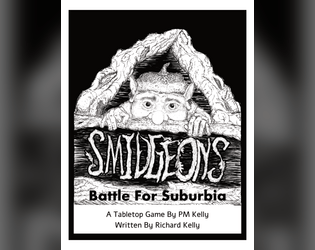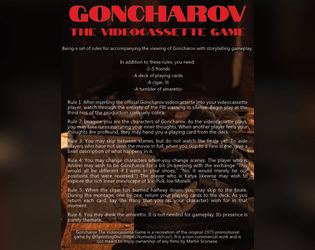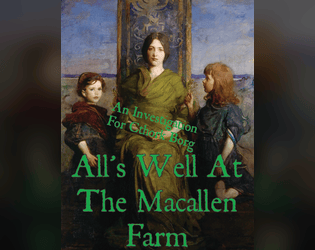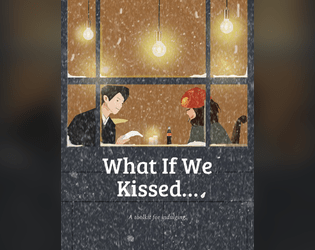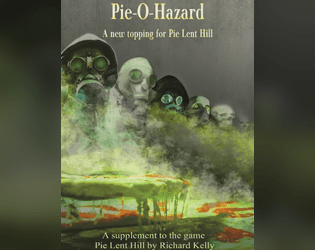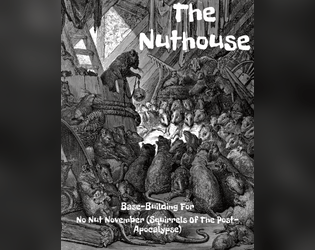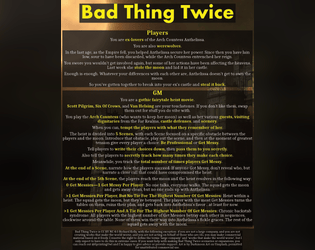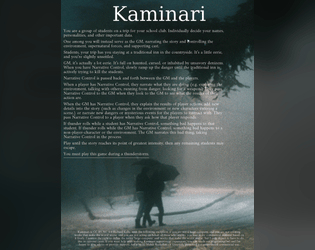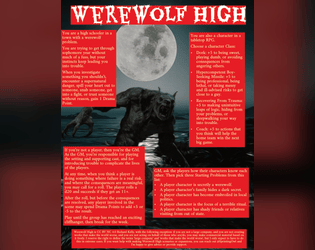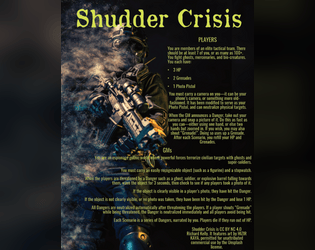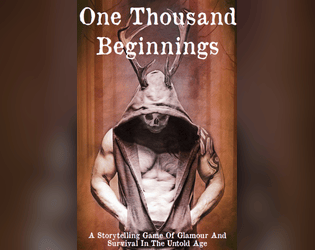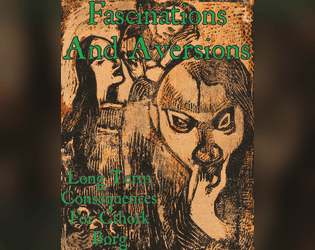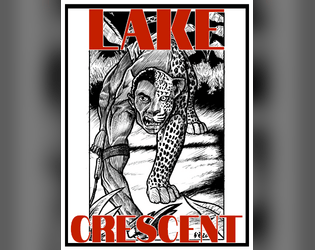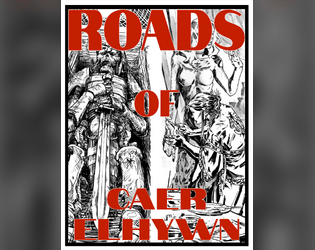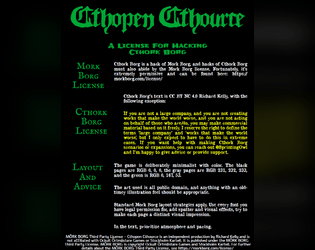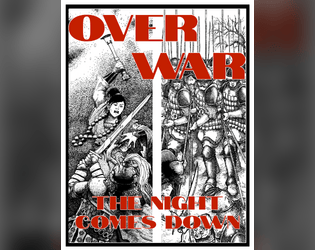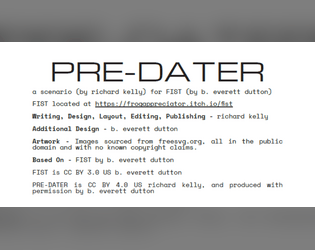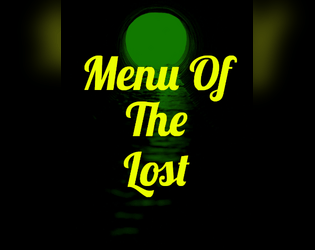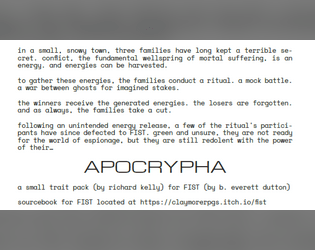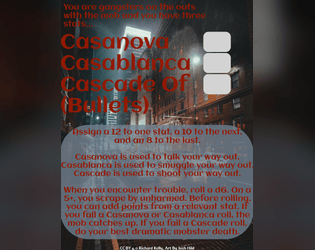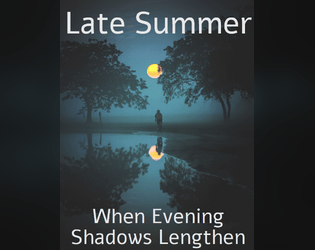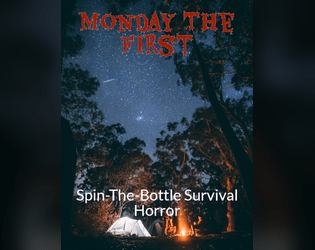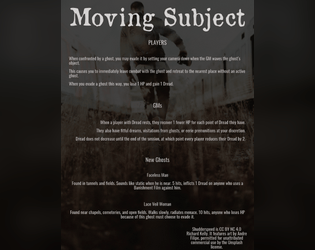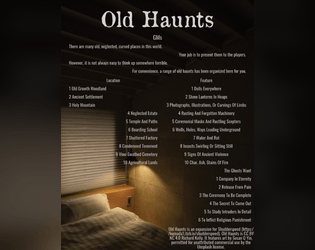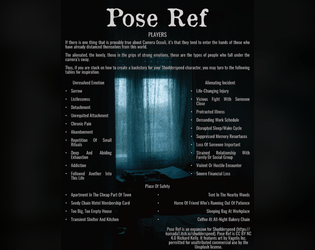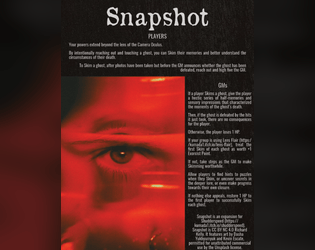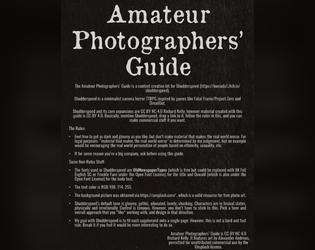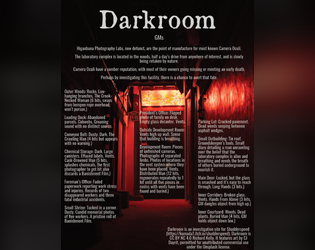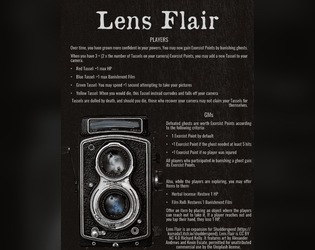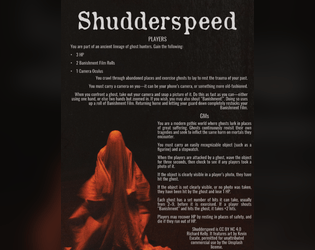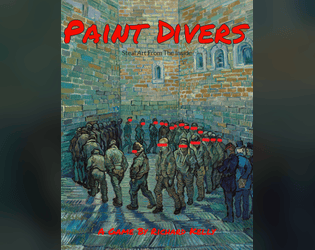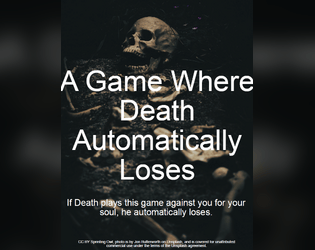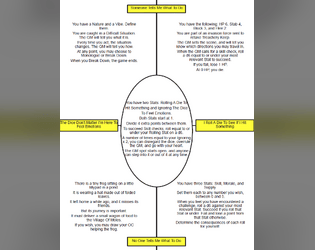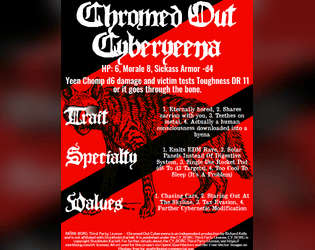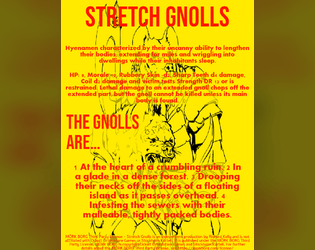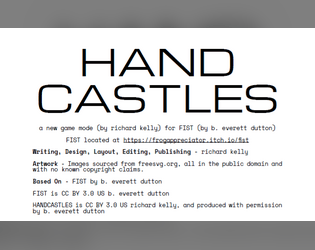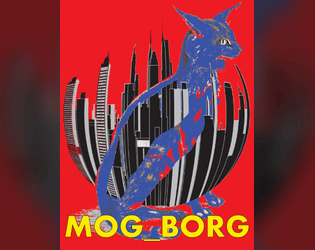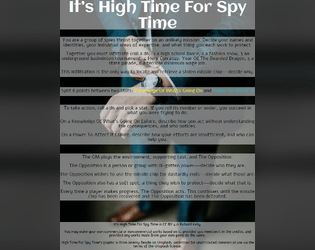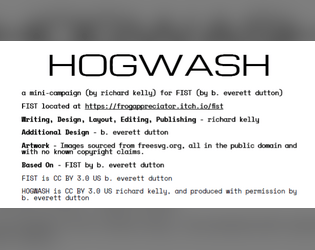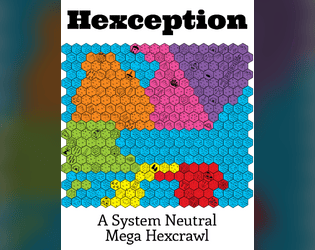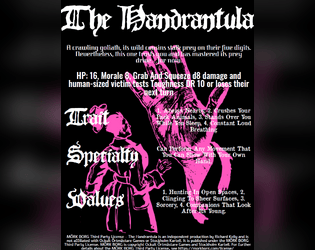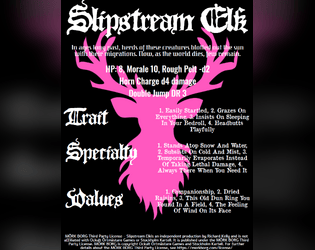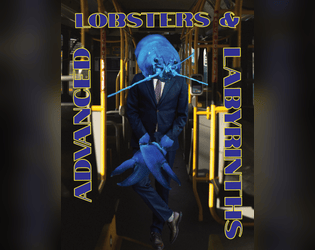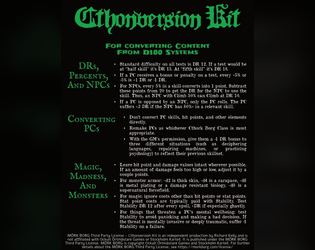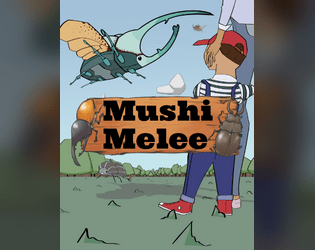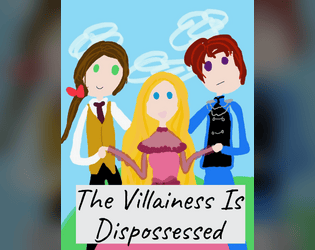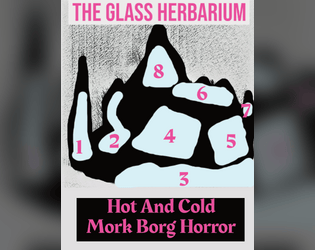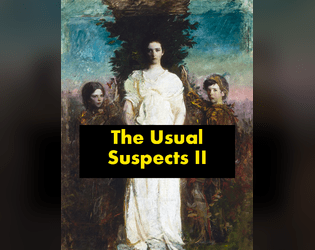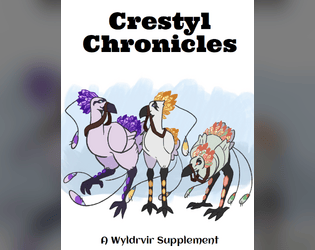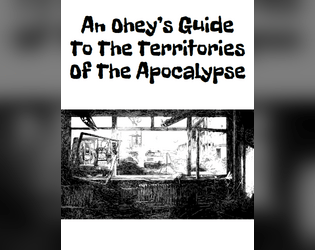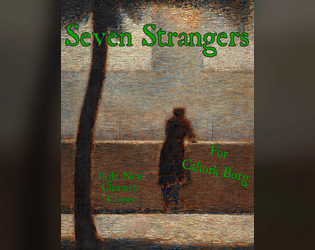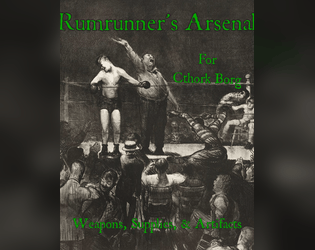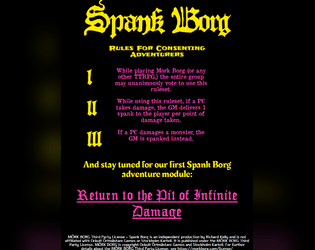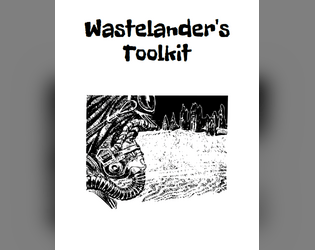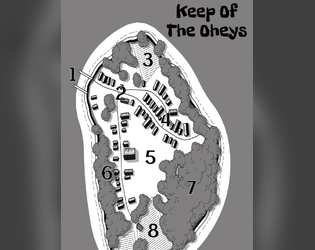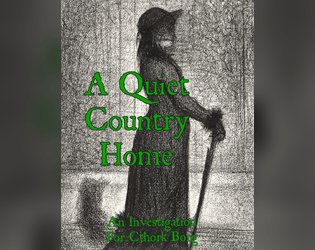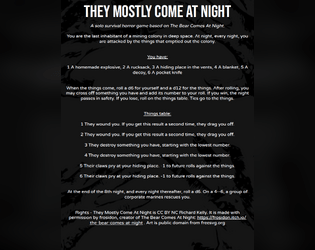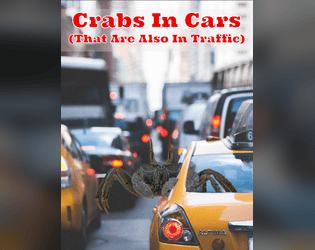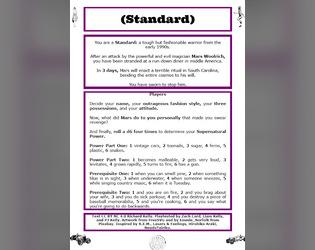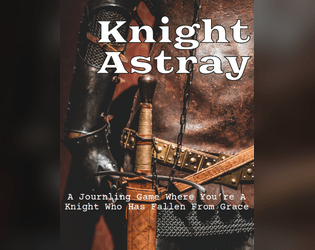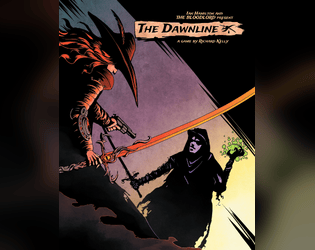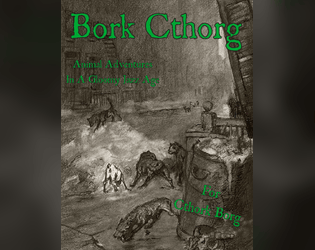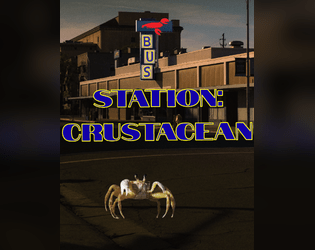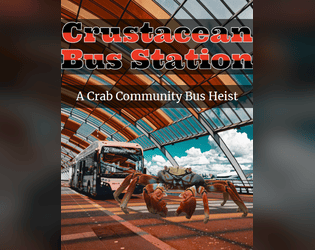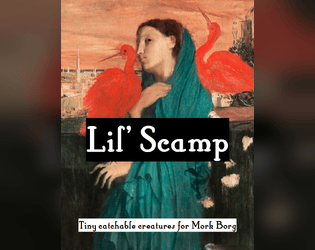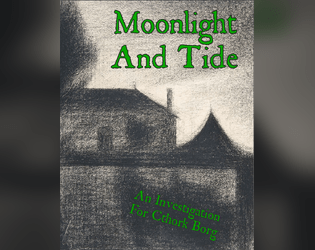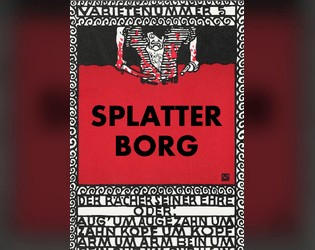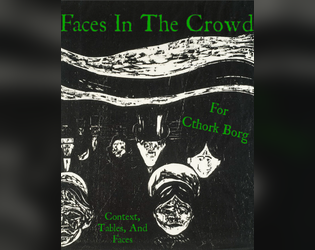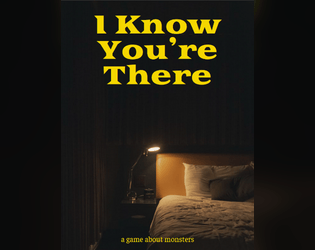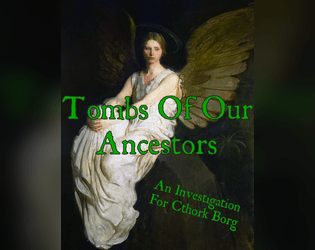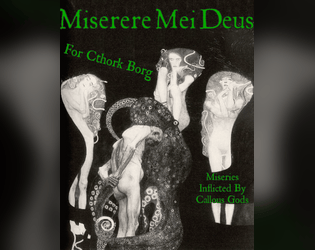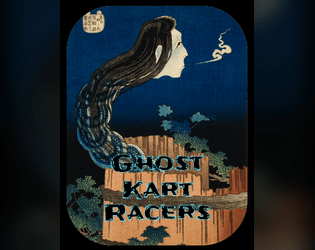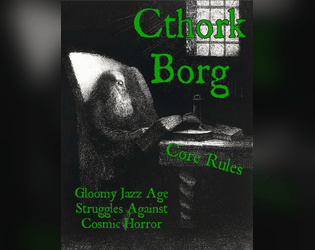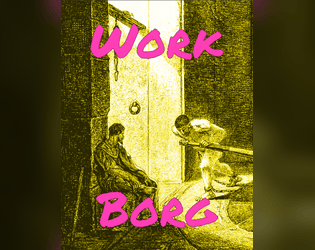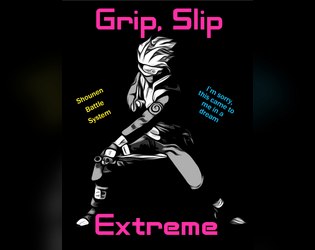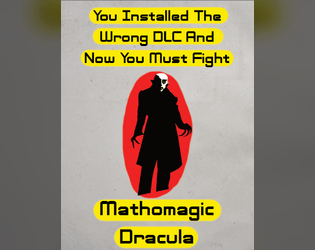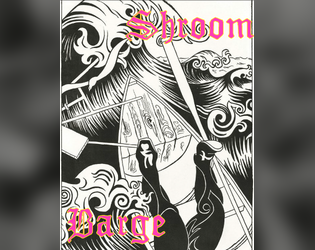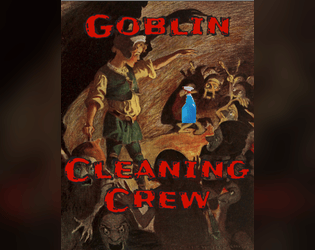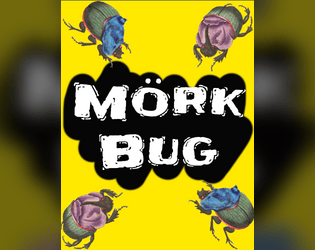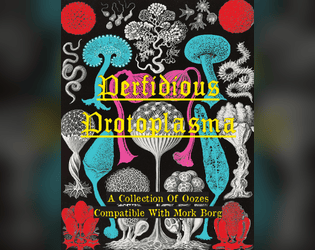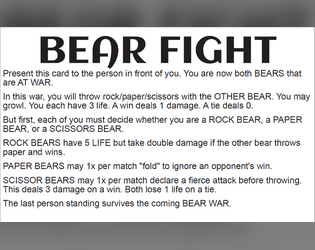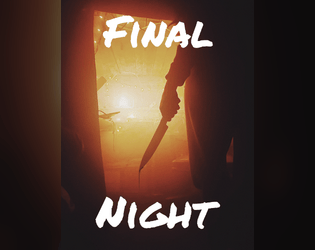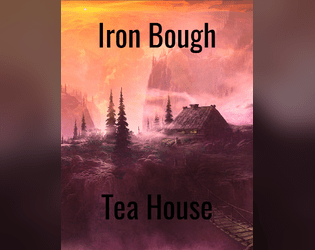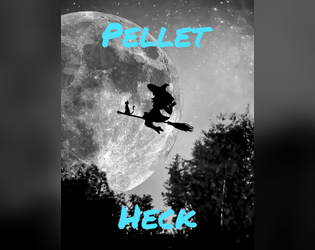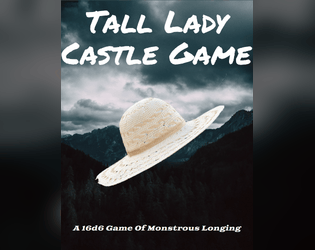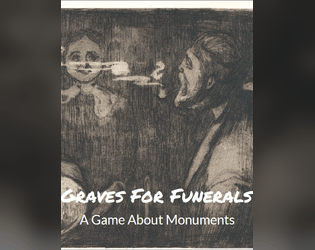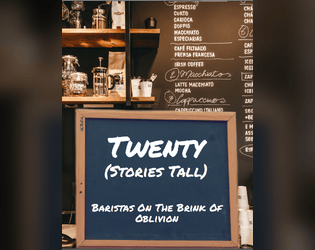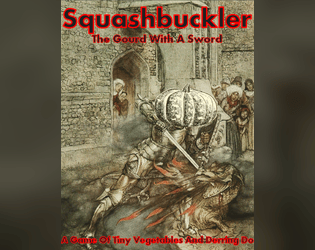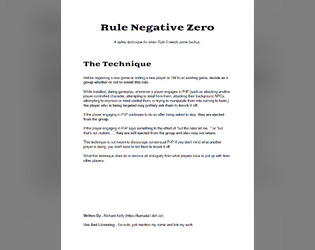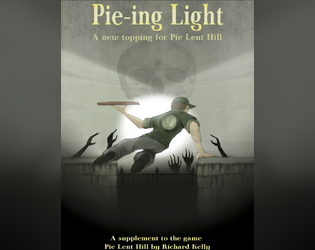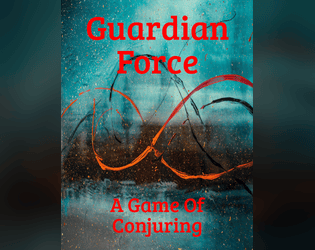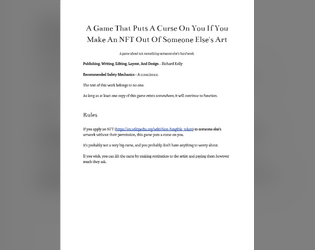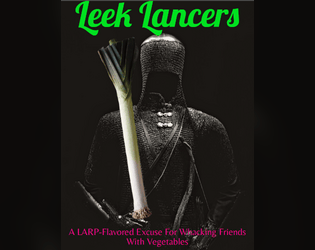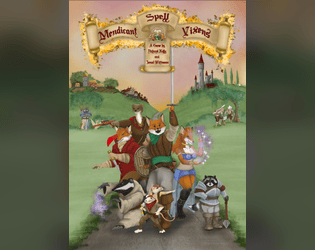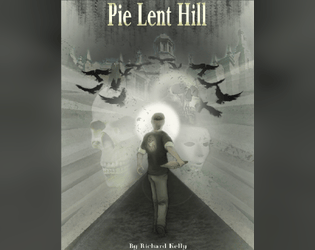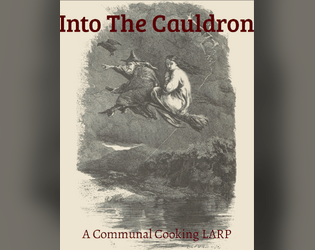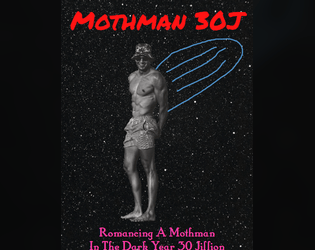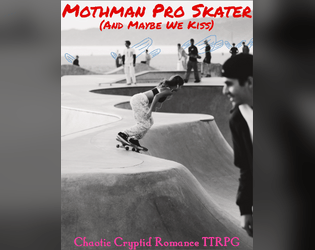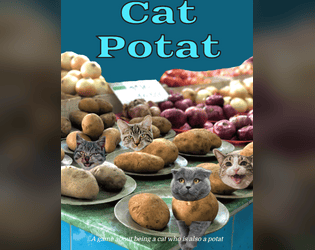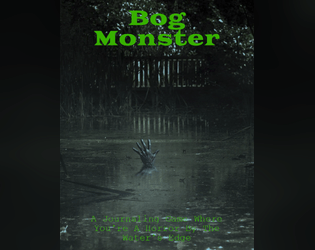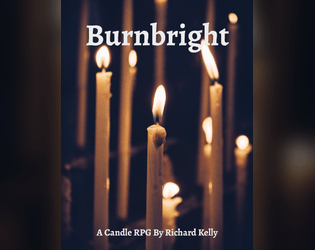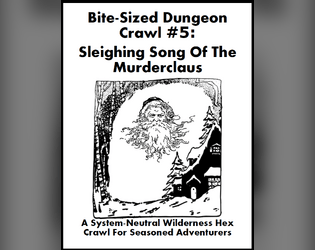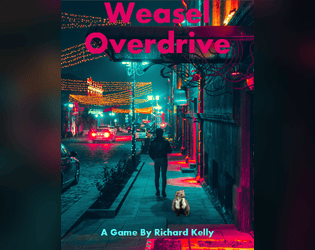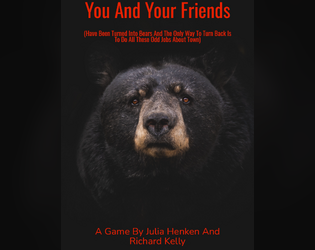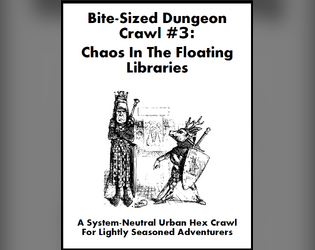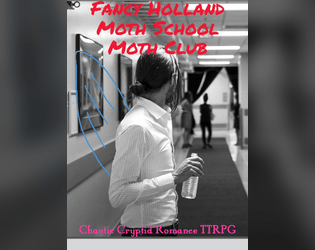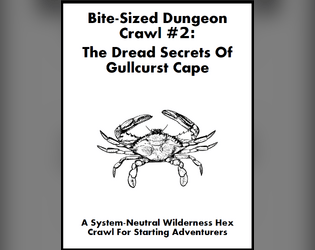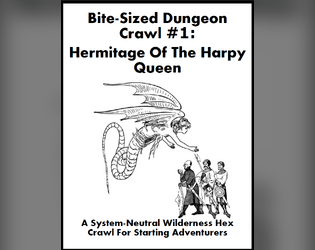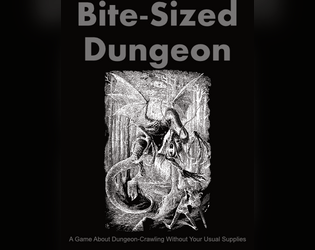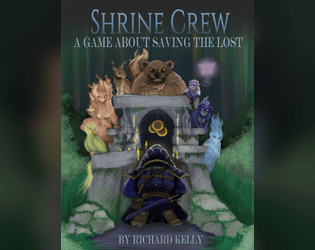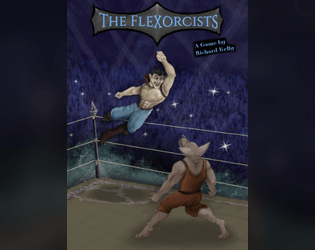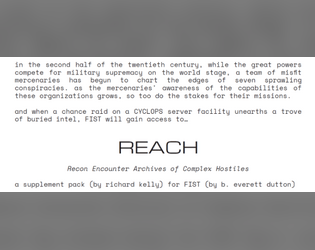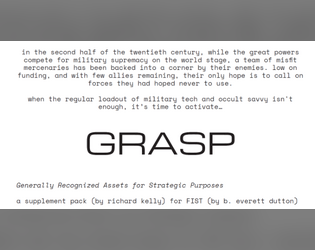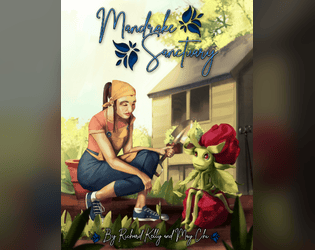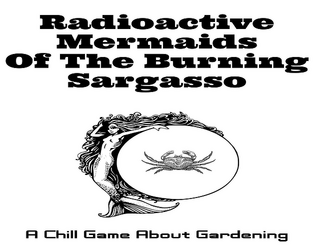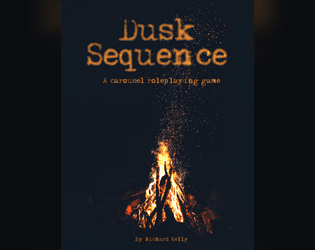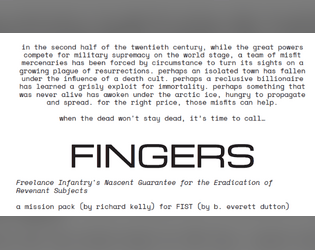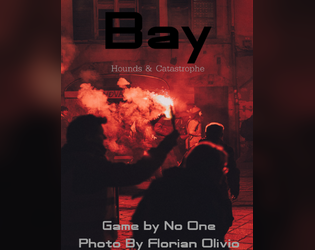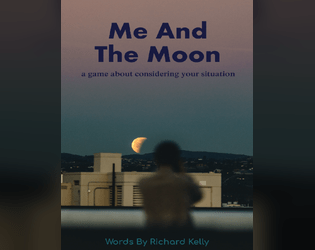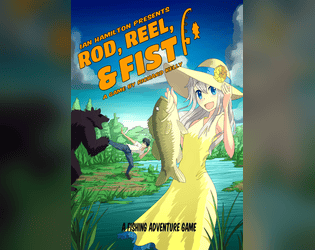Heck yeah. It's always worth picking up new skills.
kumada1
Creator of
Recent community posts
Soloterrare is a supplement merging Fukuzatsu with Chorogaiden. If none of those words are recognizable to you, you probably want to check out NeonRot's other works first, but the tldr is it's survival horror balatro. It's also a standalone, so you don't need to have played Fukuzatsu to play this.
Soloterrare's PDF is 44 pages, and is done in the traditional acid and neon NeonRot aesthetic. Despite this, this text is always clear and easy to read (with potentially some issues for folks who are red-green colorblind later in the book.)
Contents wise, this is a well explained solo ttrpg that uses a heap of tools for a roguelike play experience. You need poker chips, playing cards, tarot cards, and you need to be cool with permanently marking and destroying certain cards.
The tarot cards are used for generating monsters (and also cleverly for generating upgrades after you've beaten those monsters,) and the game orbits around sequences of battles interspersed with visits to an upgrade shop. A lot of solo games lean heavily on atmosphere and player-directed storytelling, but Soloterrare is the opposite. This is a gamey game. You're trying to win. You're just also getting served a horror atmosphere while you're doing so.
For folks who do not like calculating values, Soloterrare may be a difficult sell. None of the rules are hard to parse, but there's a fair few of them and they're all important. On the opposite side of the coin, this means you can put a *lot* of strategy into which poker hands you play and how you customize your deck, and the depth of strategy expands if you play in the optional duo mode. In fact, having a friend to read the rules with you may decrease some of the cognitive load of learning the game for the first time.
Overall, Soloterrare is a really neat offering for players who like crunchy solo games. I think it could also form an interesting foundation for a gamebook, allowing for the addition of more of a narrative. If this sounds like it's up your alley, you should check it out.
Oh, yep. It was definitely designed to be played as it was read, and I don't think I communicated that as effectively as I should have.
I don't do a ton of solo game work, so a good bit of this was just me tinkering with mechanics and ideas. I'll roll the knowledge I got from it forward into my next thing.
This is going to be a complicated review because I think the line between smut and horror is really just what's to your taste---in the same way that the line between a good meal and a bad meal can be crossed in either direction by tossing in a ghost pepper.
Also, I think that smut *is* art, and therefore it should be reviewed and talked about with artistic audiences---audiences who are mature enough to handle that conversation.
Also also, for me this game is horror.
Anyway, Digital Angel is a 12 page campunk surreal science-fantasy ttrpg that is blaringly dressed in the iconography of sex. What does any of that mean? Hell if I know. It's HunieCam Studio by way of Va11 Hall-A by way of Burnout Reaper. It's Maid RPG, social pvp mechanics and all, fully recontextualized as economic horror. It's about a world where weirdos on message boards post bounties for cam performers to track down and consensually(?!) hook up with targets in a miserable cyberpunk metropolis. It's an anime from the curtained off section at the back of the Blockbusters, but really the animation quality is very high.
Digital Angel is loud, crass, earnest, exposed. Very exposed. You play as an angel that has been cybernetically modified and is now working on cam sites to make ends meet. The book positions this work as divine, mundane, boring, degrading. Sometimes by turns, and often several of those things at once.
The GM meanwhile plays as the crushing economic forces that surround you. And those forces are not "crushing" as in "oh no, pleeeeease~ don't exploit me <3". They're not in service of fantasizing about whatever you want to fantasize about. They're real world misery, lightly recontextualized by the weirdness of the setting.
When the game hits cyberpunk beats, it hits them in the same way you might apply a hammer to a kneecap. You're not guaranteed to feel good, but you are guaranteed to react.
"WILL measures a Worker's WILL TO LIVE. When WILL drops to zero they die" is how the first section on mechanics starts. Basically, you roll a dice pool and use it to assemble poker hands, but each time you fail you lose dice and eventually it becomes impossible to do any better than the minimum 1 Six hand for a complicated success. You can reroll dice based on your relevant stat, but any 1s are unrerollable auto failures. So the longer you roll, the more certain the odds your character will die. You can push things by sticking to low pools and prioritizing self-care---but if you want to see results, you're going to have to burn the candle of your lifespan. I think anyone in a freelance job can sympathize with this.
There *is* humor in the game, and some of the jokes are so bleak that they surprised a laugh out of me. You get random bonuses called Edges, and there's a completely obvious crass wink that the game ignores to make a way funnier crack that you have these powers because of routine exposure to Red 40 dye. That same page has the full "life liberty and the pursuit of happiness" quote recessed into the background, nearly fully obscured by the game mechanics.
Digital Angel's layout is *smart*, and there's a lot of hidden information tucked out of the way, Cy_Borg style. In fact, I think I could call this game "gloomier, hornier Cy_Borg" without blinking. It's not hard to read (unless high frequency pastel pink hurts you,) but it's not plain or playing it safe either.
I think a point of critique I do have---and that I'm not sure is valid but we'll get into that in a moment---is that I would not describe this game as sexy, nor as a game I would choose if someone put a gun to my head and demanded a sexy ttrpg. Or actually, maybe it would be ludonarrative harmony to choose Digital Angel in that specific case? Either way, when Digital Angel is specifically talking about sex it feels rotely, loudly horny. Horny as a career. Horny as a minimum wage with college debts and a sense that the economy might one day get better, but never for you---career. Big Horny, but in the same scansion as Big Pharma.
The reason I'm not sure that my critique is valid is 1) not everybody likes the same stuff, so it is entirely plausible that people who are not me will find the game's whole setup hot, and b) a game about selling sex does not have to be hot to have something interesting or worthwhile to say. And I do think Digital Angel has a bunch of interesting things to say, or I wouldn't be ignoring my own reservations over ever talking about horny media as a brand and talking about it.
By the way, on a purely game design level, there are a lot of cool little flourishes in the system. All of the classes are named after heroines from stories, from Chang E to Tank Girl, and all of them recontextualize the way power flows in the game. Workers with high Beauty can steal Will from lower Beauty Workers---Cinderella gets a temporary Beauty increase for a Will cost, making her even more of a Will vampire. Generally you have to roll dice to succeed at things, but Eve has Good Girl, which lets her suffer and lose 1 Will to make a success without a roll. Red Riding Hood literally and with her jaws eats men and recovers a ton of will from it---probably enough to survive multiple scenarios if a Cinderella doesn't get her first.
I think minus the sex branding, this would be a really interesting system about being a twitch streamer / vtuber / digital personality in this modern era where basically every job is being rapidly eroded into freelance. It would stand out, as I don't know too many other systems that tackle this sort of subject matter (only Ryuutubers, which I haven't read yet.) However, this was built to be a horny game. Sterilizing it would cede space to the puritanization of the internet. Not everything has to be for everyone. Not everything has to be for me.
In conclusion, this review is concluded. Everything I've already thought I've said already.
Minor Issues:
-Page 3, Edges, "Carido" instead of Cardio
Culina is a vegetable fantasy ttrpg.
The PDF is 26 pages, with big fonts, soft colors, and lovely custom artwork. The vegetable sprites are really charming, and have a great sense of character, and the layout is organized and highly readable.
Rules-wise, there's definitely some osr going on here. Characters have Body and Mind, and roll under on 2d6 to succeed. Characters also have HP, called Freshness, and characters that run out of Freshness take Body damage until they are destroyed.
The list of inspirations for Culina is long and august. Tunnel Goons, Wanderhome, Into The Odd, Honey Heist, and more.
The worldbuilding here is in clips and fragments, but they're all fun and easy to develop further. Radishes are so bad at stealth that they've given up on theft as a society and none of their cities have doors. Avocados believe that music and strength of arms are the same thing. Etc.
The rules are easy to learn, and there's a lot of support for the GM packed into this book. There's a small bestiary, some prompts tables, and a very clear sense of the game's setting that's easy to extrapolate into adventures.
Overall, if you like cozy fantasy adventures and sprightly little plants you should really check Culina out. It's a great addition to any all-ages, osr, or fantasy game library.
Minor Issues:
-Page 18, Freshness, "to assess your health" your
-1s don't auto succeed and 12s don't auto fail, so with a Freshness of 12 or higher I think you might be impossible to hit?
-I'm not sure I understand how Special Skill damage works. It doesn't seem to be listed? And every Special Skill comes with a positive attack modifier, so it's always harder to hit with them than with weapons?
The Caretaker is a nurse, or is at least themed around medical care.
The Victim is a final girl, and orbits around slasher movie tropes.
The Innocent is closest to, like, a gothic heroine. They're pure and strong of character.
The Victim and the Innocent tread slightly similar territory, but the Victim is about luring monsters and fighting back and the Innocent is about support and self-sacrifice.
Changes made!
Old Wounds now can no longer be be triggered off of things like bleed or Specialties with a damage cost, so Scar accumulation should be way more normal. Also the cost for Reconstructive Surgery has been split and dropped---it costs much less when just addressing the HP loss. Also Scars reduce Abilities much less often.
The goal with Scars, for groups that choose to use them, is to slow down HP / Ability accumulation over a long campaign. Characters that get hit a lot will still average +1 HP and +.5 Ability per two investigations, and Scars won't affect Specialty gain or finances or any of the other ways investigators have of becoming stronger, so they shouldn't mess with the pulp tone too much.
The current version of the PDF is 12.12.24, and is uploaded.
Thank you for catching this issue!
Attempting to answer this question made me realize there were a ton of problems with Limb Cavity, and so I have reworked it both for clarity and to scale back its ability to do wild stunlocking via grapple. The new version of the PDF is 12.11.24 and can be downloaded via the normal means.
The intent with Limb Cavity is that it's a burst of unarmed attacks and then you suffer bleed. You can combo it with stuff like Crook's Heavy, and you can use its attacks to grapple as per the normal grappling rules, so it's a little too strong for just a 1 Action 1 bleed cost.
Yeah. The nature of designing this game over a long period of time has made it so that some Specialties lag behind others, and also made it difficult to patch older books due to the layout software.
You could lean into this by making it so that when you gain a Specialty, you roll randomly on that Class's Specialties chart, but it's also perfectly fine to issue spot buffs if a Specialty doesn't feel interesting. I think the ring giving a small damage bonus on spells could be good, and also having it teach you a spell when it breaks.
Yeah, I think this might fall into the subgenre of ttrpgs as Machines That Hurt People.
It will definitely tend to produce stories about struggle, contextualized through lower energy MMO chatter, and if the group lets their thoughts drift to heavy matters it can turn very sad very quick.
I do think it's possible to play it with the problems being more wacky and low stakes, or to tell a more serious-toned digital adventure story along the lines of .Hack, but by default this might be an unhappy game.
The Thing About _____ Is is a TTRPG adaptation of the I'm On A Boat music video.
The PDF is 9 pages, with a clean business infographic style layout.
The writing here is uncommonly sharp, burrowing into corporate synergy-speak, parasitizing it, and hatching humor from inside.
Gameplay-wise, this is a solid party game. It has simple turn-taking and guns-and-butter style building yourself up or sabotaging others, but it constructs all of this around having to give weird narrative justifications based on whatever random thing your manager has become infatuated with at the moment, as you try to wrangle your way into an employee of the week vacation.
In terms of layout and usability, this is also a banger. The Thing About _____ Is does a really good job tutorialing its gameplay through a text conversation on the side of each page. I don't think I've seen this kind of running color commentary tutorial in anything else outside of the Dresden Files TTRPG, but it's a really good technique and it works excellently here.
Overall, if you want a small icebreaker rpg for a group that either doesn't play any TTRPGs or that plays a *lot* of TTRPGs, this is an excellent pick. It isn't often that I get to call something a The Office TTRPG (positive), but this is that. It's smooth to play, easy to learn, and produces good comedy and just-sweaty-enough gameplay to make everyone feel like they have stakes. If you're a designer, I'd strongly recommend checking this out. And if you're not but you've read this far anyway, I think you'll like it too.
Yep! There's a few in the indie that are explicitly designed to be played during other games. At the moment, I cannot remember their names, but I've definitely seen some. And there's also a few (specifically fishing ttrpgs) that slot into other campaigns pretty easily even if they're not intentionally built to interact with other systems.



